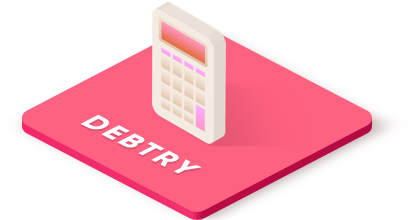Medical Debt


We rarely plan on it. In fact, we pay over a trillion dollars each year for health insurance, largely in hopes we can avoid being overwhelmed by debt from essential medical care. Even with insurance and the promises of a market economy, the average American spends over $10,000 a year for medical care – far more than citizens in any other country. At some point even the specific dollar amounts cease to tell the real story. Our average medical debt is somewhere between “unacceptable” and “overwhelming,” hurling headlong into “indecipherable.”
Over half of the accounts turned over to collection agencies include medical debt. Over half of the bankruptcies filed across the United States include medical debt as a major factor. The rest of us aren’t exactly in the clear. Over half of Americans report they have substantial medical debt and over a third report medical debt of $10,000 or more. (That’s before the Coronavirus pandemic. It could be years before we have any clear picture of the long-term impact of this latest nightmare.)

chances are good that on top of everything else we’re expected to navigate in these complicated times, you’ve had substantial unplanned medical expenses. That’s never good news.
There are some things you can do to make paying off medical bills a little bit easier. There are, in many cases, solutions for partial or total medical debt relief. Creative solutions for consolidating medical debt or seeking even non-traditional help paying medical bills are often preferable to medical debt bankruptcy. Know up front, however, that difficulty paying medical bills is not an indication that you’re irresponsible or in some way a bad person.
Don’t let unwarranted guilt or the misplaced idea that you’ve somehow “failed” cloud your thinking.

Medical debt is unlike any other type of debt. Its ability to appear out of nowhere and take over your financial world at the worst possible times is unique in personal finance. We’re not suggesting that you’re helpless to deal with it – far from it. There are solutions and plenty of information available to help you determine the best approach for you. That is, in fact, the whole point. If the problem were you, it seems unlikely the issue would get so much attention nation-wide. Instead, overwhelming medical debt is so shockingly common that while politicians debate it and journalists unravel it, websites like this devote entire sections to personalized solutions.
In other words, for whatever it’s worth, you are not alone. Far from it.

The processing power of today’s technology continues to improve while the lessons learned from everyone else’s previous efforts allow us to re-imagine what’s possible in practical, intuitive personal financial apps and tools. Like your fitness tracker or favorite phone app, the ideal applications don’t tell you what to do with your money or time. What they excel at, however, is providing you the information you ask for in the format you choose, as often as you request it.
No app can help pay my medical bills directly, but it can help me keep track of them. Imagine the power of personal financial management on your phone, tablet, or any connected device, as easy to use as your favorite social media site. Imagine medical debt management integrated seamlessly with your spending and savings management tools, your long-term budget planning app, and complete access to all of your accounts.
You’re still in charge. You’re still responsible. Why not take advantage of what available technology can do to make your decisions more informed and your time more productive?

You may not actually need outside intervention or some dramatic form of medical debt relief. If your outstanding medical bills would potentially become manageable under the right terms, perhaps that’s where you should start.
Unlike credit cards, vehicle loans, utilities, or even your rent, medical providers rarely have specific late fees and almost never charge interest. However large their accounting departments may be, most are still anchored in the idea that they provide medical care to folks first and do bookkeeping second. Complicating even this process is something you’ve probably already figured out – there’s usually no discernible system to explain what processes, supplies, or treatments actually cost from doctor to doctor, hospital to hospital, or even week to week.
There are historical reasons for this involving our modern health insurance system, but they make for a lengthy and tangled tale and the details aren’t important here. What is important is that however sneaky you may find your credit card provider or the company financing your vehicle, they at least have systems. They know exactly what each step of the process costs them, what they’d like you to pay, and how much room they have to compromise if necessary in order to retain your business.
Not so your local hospital. Maybe not even your local urgent care or family doctor, although the problem is far more pronounced in larger organizations. The only numbers providing even an illusion of stability are those indicating what various insurance providers or government programs will and won’t pay for (and how much) and hard costs of tangible supplies and overhead. Beyond that, well… they’re not exactly “winging it,” but in many cases they might as well be.
What this means for you in terms of your efforts to get rid of medical debt is that the number one thing you can do is pick up the phone and have a very direct (but polite) discussion with their billing department. If your medical debt involves a surgery, hospital stay, or other substantial expense, ask for an itemized bill (not just an “explanation of benefits.”) You have every right to ask about specific items or question specific charges. Keep in mind, of course, that while the person at the other end may be able to help you unravel the numbers, they didn’t personally come up with the system.
Gather your medical debt information and see how it fits into the rest of your budget. Is there a reasonable payment amount you could make each month to avoid simply defaulting on your medical bills, falling into bankruptcy, or even having your account turned over to a medical bill debt collector? If so, be prepared to make that offer on the phone with the billing department folks.
Ask about potential medical debt forgiveness programs or services. You may feel like healthcare debt has taken over your life, but they do this for a living every day – if there are alternatives available within their system or in your community, they probably know about them. Remember that you’re already ahead of the curve by getting proactive about paying down medical debt. You’re not looking for a handout; you’re looking for a hand up so you can meet as many of your responsibilities as realistically possible.
Even more than most creditors, they don’t want to turn you over for collection. That’s a money loser for them in most cases, and while they’d no doubt like to maintain a profit margin, they’re not the mob. They’re not worried about their reputation on the streets if they show mercy with you and your medical debt. If you can manage a regular monthly payment, medical providers will often agree.
It’s up to you, of course, to make sure you follow through on make those monthly installments consistently.
One of the more disorienting things about medical debt is how a single procedure or brief hospital stay can result in dozens of separate bills from places you didn’t even know were involved. There’s one from the hospital, another from some “consulting physician” you probably met, and a third from some service operating inside the hospital that you’re not even sure what they do. Three months after you thought you had it all sorted out, you suddenly discovered your anesthesiologist was out-of-network and received a bill showing you were somehow past due on paying thousands more dollars for her.
A medical debt consolidation loan won’t make your medical debt go away, but it can help you regain some control over it. The first step, of course, is to do everything you can to account for all the miscellaneous expenses for which you’re responsible. Save any bills you receive, of course, but to find out what else might be in the pipeline, call your insurance provider or log in to whatever customer portal they may have available online. Many times there will be a claim history showing efforts to secure payment and potential amounts you’ll be asked to pay.
It never hurts to check with your local bank or credit union for medical debt consolidation loan options. If you have fairly good credit or a long history with the institution, they may be able to offer you decent terms. We can help you explore online sources as well. Goalry doesn’t loan money, but we do maintain a curated database of reputable online lenders – many of whom specialize in healthcare debt and paying medical bills, even if you have limited credit or bad credit.
Pros and Cons of a Medical Debt Consolidation Loan
A medical debt consolidation loan is a personal loan, meaning it’s not secured by your home or other property. The interest rate and other details will largely depend on your credit history and current financial information, although you should never assume that automatically means you won’t qualify or can’t work out manageable repayment terms. Online lenders in particular often offer surprisingly competitive rates, and both the application process and turnaround time are minimal. Consolidation loans typically carry a fixed interest rate and a predictable repayment schedule, meaning you pay the same amount at the same time each month until paid in full.
A consolidation loan helps you get rid of medical debt to the extent that you’re able to immediately satisfy the various healthcare providers who keep calling and sending you bills. Your slate is clean, which is a stress-reducer and makes it easier to seek assistance next time you have a medical question or other medical needs. The debt doesn’t magically disappear, of course, but a medical debt consolidation loan allows you to take control of it on manageable terms instead of the debt controlling you. Repayment is scheduled
A potential downside to consolidating your medical debt is that unliked with most medical bills, it’s no longer interest-free. Failure to repay your medical debt consolidation loan can be damaging to your credit as well. While it’s ideal to avoid any sort of medical debt on credit report or credit score checks, recent legislation has reduced the impact of medical debt on credit report calculations. It matters, but not as much as it used to and not as much as other forms of debt.
Once you’ve consolidated, however, your medical debt is paid in full and – as far as your credit report is concerned – you’re simply paying on a personal loan, which impacts your credit report for good or bad just like any other personal loan.
You’ve no doubt noticed how often you come across a Go-Fund-Me or other crowdfunding campaign to help someone pay their medical bills. Services which originally helped ambitious artists turn their visions into products now devote over half of their bandwidth to helping everyone from infants to grandparents get basic medical care. While there’s an important discussion to be had about what this suggests about the larger health care system in the U.S., what it means for you is that nothing’s off the table when you need help with medical bills.
There’s also no shame in asking your employer or any religious community to which you belong if they have connections or options. Don’t worry that you’re taking advantage of others – you are, but that’s how living together in a community is supposed to work. The expectation is that once you’re back on your feet, you’ll find some way to help them out as well.
Finally, when all else fails, medical debt bankruptcy may be an option. Medical debt is usually wiped out in full in the process and you have a chance to reboot and rebuild. It’s not ideal, but it’s better than being perpetually buried in medical debt if nothing else seems to work.

At Goalry, we have a rather ambitious vision. We believe that most of us can take far more effective control of our personal and small business finances if we’re simply offered better information, more useful tools, and curated connections across the financial world. We understand that real estate, investments, taxes, debt, loans, bills, buying homes or vehicles, paying for weddings or vacations, legal debt, and yes, medical debt, each come with their own challenges and potential rewards. We’ve built an interconnected “mall” of personal and smll business financial websites. Each offers insight and education, financial tools, and connections to resources to help you push forward with your goals, whatever they may be.
At the same time, the various elements of our financial worlds have more in common than not. They’re all part of your effort to take better advantage of the resources available to you in order to provide for yourself and those in your care. They’re all impacted to varying degrees by your credit score and your credit past. They all shape your credit score and ongoing credit history moving forward.
The most important parts of our lives are never just about money, but money impacts almost everything we do or want to do. We don’t want more control of our financial worlds solely for bragging rights. We want to have more options, for ourselves and those we love. We want a better deal out of this complicated world. We want to be able to take care of ourselves and our families.
Unified finance is a huge step towards that. We can’t make everything you tackle in this world easy, but neither does everything have to always be as hard as it seems. And you don’t have to do it alone.